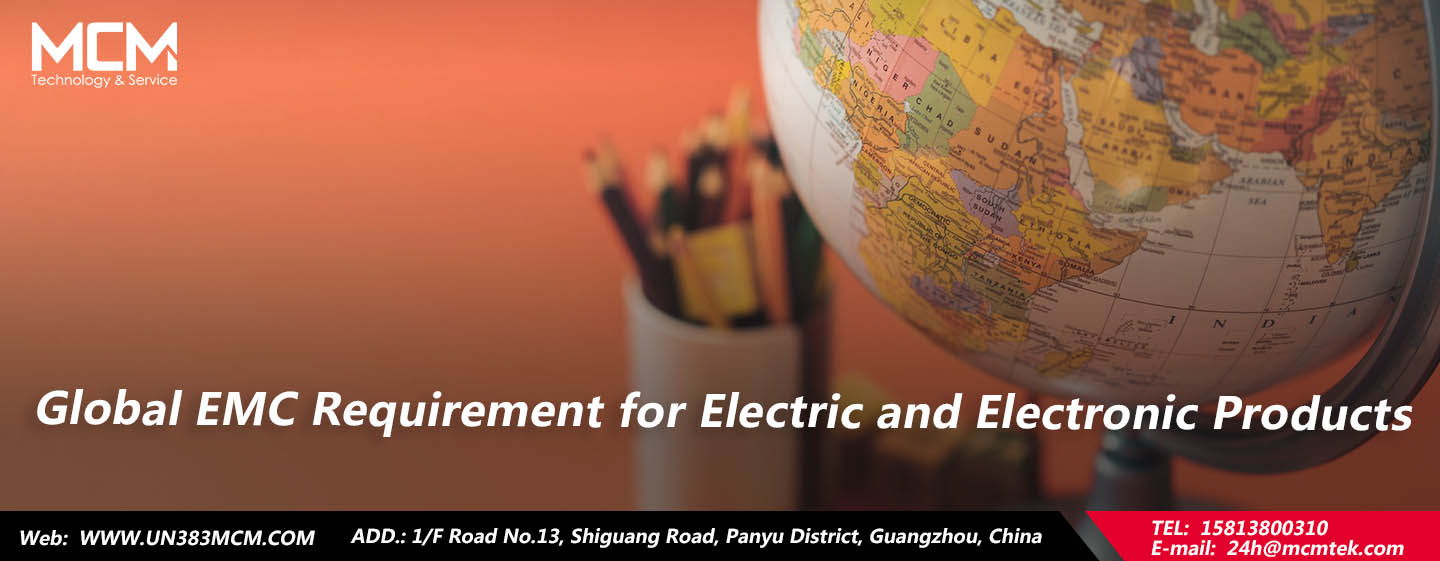Background
Electromagnetic compatibility (EMC) refers to an operating status of equipment or a system working in electromagnetic environment, in which they will not issue intolerable electromagnetic interference (EMI) to other equipment, nor they will be impacted by EMI from other equipment. EMC contains the following two aspects:
- Equipment or a system will not generate EMI that exceed the limit in its working environment.
- Equipment or a system has certain anti-interference in electromagnetic environment, and has certain margin.
More and more electric and electronic products are produced with technology fast development. As electromagnetic interference will interfere other equipment, and also cause damage to human body, many countries has regulated compulsory rules on equipment EMC. Below is the introduction for EMC rule in EU, USA, Japan, South Korea and China that you need to comply with:
The EU
Products should comply with CE requirement on EMC and marked with “CE” logo to indicate the product comply with On a New Approach to Technical Harmonization and Standards. The directive for EMC is 2014/30/EU. This directive covers all the electric and electronic products. The directive covers many EMC standards of EMI and EMS. Below are common used standards:
- Categorized by function
- Categorized by environment
The USA
Federal Communication Commission (FCC) is the regulating department for EMC. FCC has issued over 100 standards starting from Part 0. These standards are listed in 47 CFR, which is the mandatory requirement for entering American market. FCC require different certification mode according to different kinds of products.
Japan
Japan EMC requirement comes from Law of Electric Products Safety, which is about PSE certification.
PSE covers 116 specific electric products and 341 unspecific electric products. For these products, they need to comply with not only the safety rule, but also EMC requirement. At present there’s only EMI included in Japan EMC regulation. The relevant standards are as below:
Korea
KC is the compulsory certification scheme in South Korea. Since July 1st 2012, KC has separated EMC and safety certification, and certificates will be issued separately.
Since July 1st 2013, Korea Communication Commission (KCC), the department that regulate EMC rules, changes to MSIP.
For products with over 9kHz oscillation components should conduct EMC test, including EMI and EMS.
China
In China, there’s CCC certification for electric and electronic products EMC. At present there’s only requirement on interference and harmonic wave. EMS analysis is not required.
Notice
There are many differences for EMC requirements among countries. For example, FCC, PSE and China rule only requires EMI test, but in EU and South Korea they require both EMI and EMS, which is a stricter request. Therefore, before entering your target market, it would be better to know the regulations in advance.
If there’s any requirement, we welcome you to contact us.
Post time: Sep-28-2023








